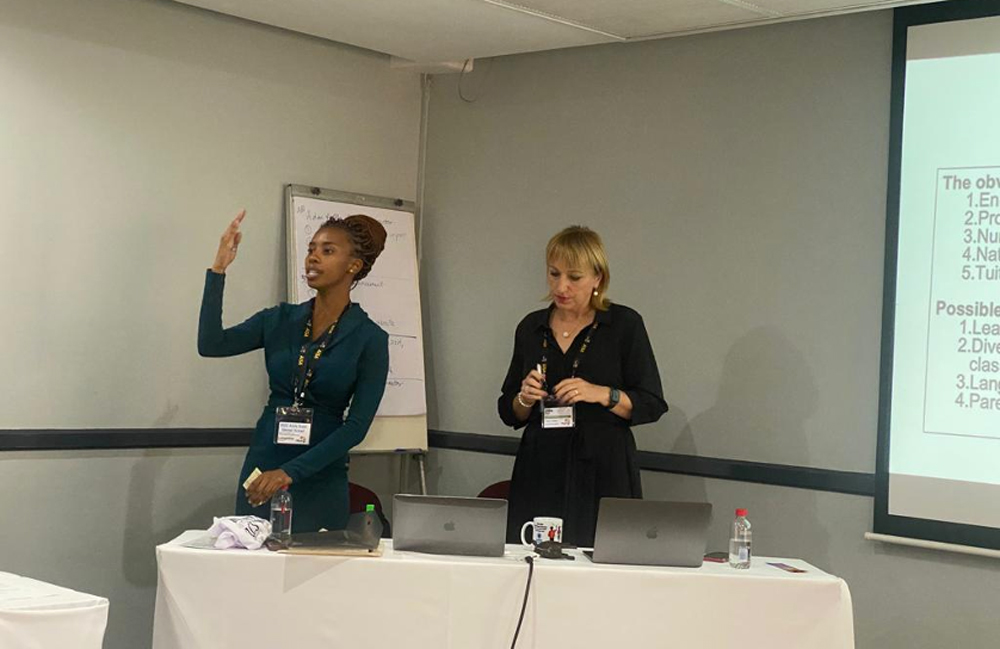
How accurate is our enrollment data? What factors affect the precision of the information that enrollment directors share with various school stakeholders?
It is important, first, to clarify the terms admissions and enrollment. Admissions can be defined as the process before being admitted into the school, the process of submitting the necessary documents and information to be able to make the admissibility decision and subsequently “enroll” the student. Enrollment is what takes place after the student is admitted. This involves, for example, creating a student email account, adding the new student to relevant school databases, generating timetables, confirming that tuition fees were paid, and inviting a new family for their orientation session.
There are many factors that affect the accuracy of enrollment data:
What data are we collecting and why?
For planning purposes, the senior leadership team needs to know how many class sections are needed per grade level based on maximum class capacity.
These numbers are needed to effectively plan for staff recruitment, class splits, and class sizes to determine the provisional total enrollment.
This information is necessary for senior leadership, business managers, and the Board to forecast revenue the school can count on. This will be used as the point of reference for budgeting and staffing purposes.
This is used for schools to stay truly international and to know how diverse their student body is and, if needed, to keep track of diversity thresholds. Also, it is important for the planning of school events that celebrate the diversity of the student body such as Mother Tongue Week or an International Festival.
To better understand the clientele and continue to market the school strategically locally and internationally, it is important to collect this data. This helps the school to identify embassies/companies with a high number of enrolled (and prospective families) and to build and maintain relationships with key organizations.
It is important for the admissions offices to closely communicate with the school leadership/student support services department to make sure admissions decisions are made according to the school mission and vision statements for inclusion. It is important to have the learning support staff available with the right expertise to meet the needs of our diverse learners.
Understanding this data helps ensure all nationalities and languages are represented for school events and functions that celebrate the school's diversity. This can also help the school to connect new families with their fellow nationals, which can especially be helpful if there is a language barrier. A General Data Protection Regulation approved list can also be handed over to the school parent teacher organization (PTO) to pair new and current families who speak the same language or are of the same nationality to help them with their transition to a new country.
For whom do we prepare enrollment overviews?
Depending on the country location of the school and its accreditation, most of the admissions offices will present the data for the:
“What is your enrollment?” A simple question, a complicated answer:
There are many different ways to look at the “(opening) enrollment number” depending on who the audience is and what time of the school year this question is asked.
David Willows and Suzette Parlevliet (from the Yellow Car initiative) said, "The first law of enrollment management is the law of fluctuation." It can also be frustrating to find that one school counts “opening enrollment” differently from the next. Some schools might look at the number of students registered for the first school day. However, as we know from the nature of international schools and the many late changes that take place with our international families, this data may lead to inaccurate conclusions. This unreliable data then doesn’t reflect the reality of what is actually happening, what the numbers say are the amount of students in class versus the amount actually sitting in their chairs. For these reasons, David and Suzette set a clear definition for “opening enrollment” as the number of students attending school on 15 September.
Factors that affect the accuracy of enrollment data:
There are many different factors that can affect the reliability of the enrollment data. In the table below we have listed a few factors relevant to our schools and the reasons why it is not always easy to provide the accurate data different audiences might desire.
| Factor | Why |
| School management system (SMS) |
|
| Re-enrollment exercise |
|
| Late arrivals
|
|
| Political and economic situations and the stability of the host country |
|
| Data collection (and human error) |
|
| Communication from families/companies/embassies |
|
| Internal communication with our colleagues |
|
| Withdrawal process |
|
| Other factors (like COVID-19) |
|
Enrollment management role
As international schools around the world tend to have similar clientele, it is important to stay connected on a global level. Enrollment trends that affect one part of the world may affect another. It’s helpful to attend conferences like the recent 2022 Association for International Schools in Africa (AISA) conference in Johannesburg, South Africa to learn about what other schools are using, share and develop best practices, make connections, and stay in touch with other like-minded educators and leaders.

One can never fully know everything in the admissions and enrollment management areas. There is no secret formula that was applicable three years ago that is still applicable today. This field is progressing quickly and as it develops, it is important to master the art of staying up to date with global development that may affect data collection trends.
--------------------------------------------------------------
Dr. Jitka Stiles is the head of advancement at Lincoln Community School in Accra, Ghana. She has worked in the field of education for over 20 years.
Langa Ndiweni is the admissions and advancement coordinator at Harare International School in Harare, Zimbabwe. She has worked in the field of admissions for three years.